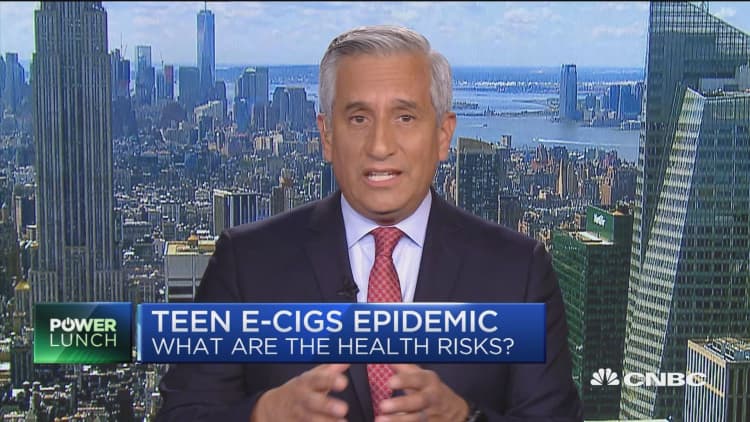If you have an addiction, new research might give you the incentive you need to kick the habit.
The American Addiction Centers has released a study of what it costs over five years to a lifetime if you habitually abuse substances from nicotine and alcohol to cocaine, opioids and methamphetamines.
And the numbers are sobering.
A nicotine addiction costs an estimated $4,628 over five years and $23,142 over 25 years.
The study compared what that money could have gone to instead, including a down payment toward a median priced home, an average priced car or tuition towards a bachelor's degree.
The numbers are even more stark for the cost of an alcohol addiction. For a beer drinker, the money spent could amount to $14,235 over five years or $71,175 over 25 years. For liquor, abusers can sink $28,101 over five years and $140,504 over 25 years.
Heroin, oxycodone and cocaine were found to be the three most expensive habits, with each costing more than $1 million over a 50-year time period.
Heroin, the most expensive, cost an estimated $318,500 over five years and $1.59 million over 25 years.
While the numbers are staggering, they are only a conservative estimate, according to Dr. Lawrence Weinstein, chief medical officer at American Addiction Centers.

That is because the study assumes a person uses the same amount of a substance such as alcohol over five, 10, 15 and 25 years, he said.
But people usually increase the amount they use over time.
"If one starts with four drinks, it never continues with four drinks over 25 years," Weinstein said. "It's going to be five, six, seven, eight and so forth."
The study's analysis of costs is just scratching the surface, Weinstein said. That is because those who have addictions often have difficulty successfully staying employed.
And their substance abuse issues may exacerbate other health conditions, such as diabetes.
Insurance costs — such as life and long-term-care coverage — are also more expensive if you have a chemical dependency, said Carolyn McClanahan, founder and director of financial planning at Life Planning Partners.
More from Personal Finance:
7 year-end tax tips to boost your refund
What to do if you're 50 or older with no retirement savings
It's time to tackle this key home financial task you've been putting off
"The sooner you quit, the better," McClanahan said.
If you don't, "you're going to get sick more," she said. "You're going to have more out-of-pocket costs."
American Addiction Centers used government data and statistics and content from news websites to compile its research.


